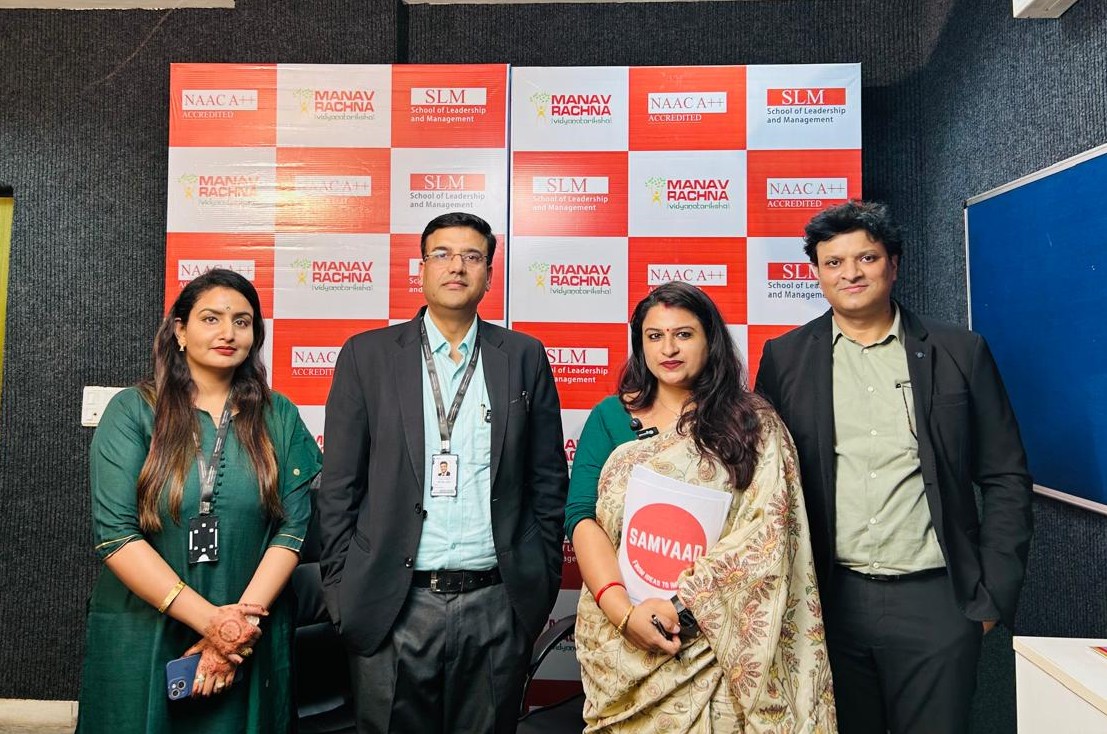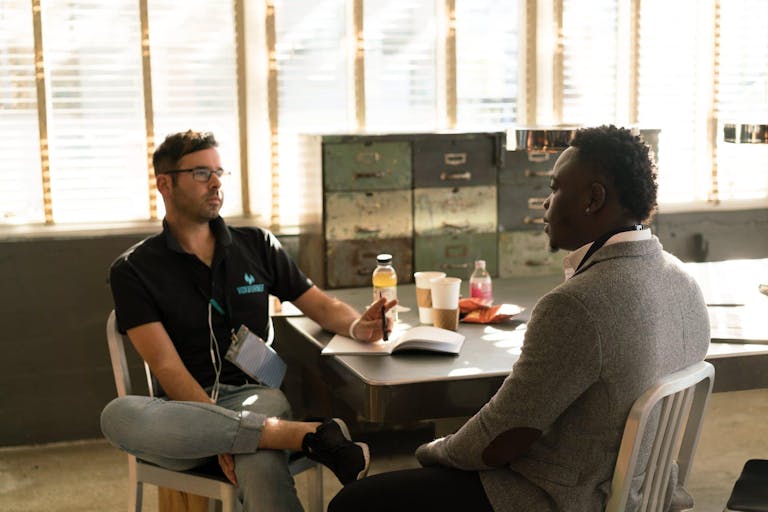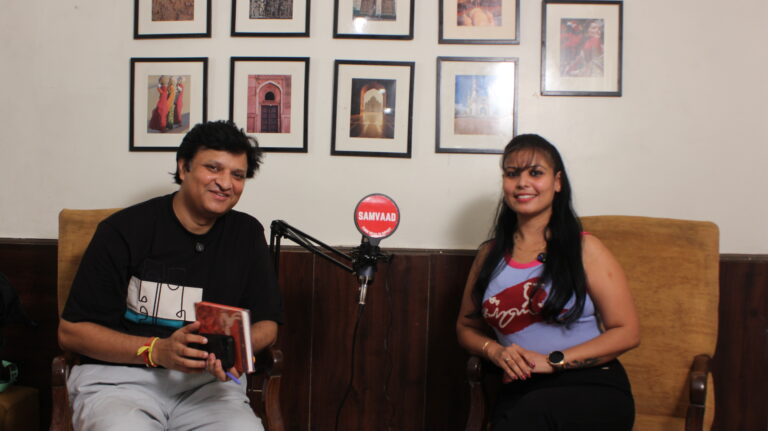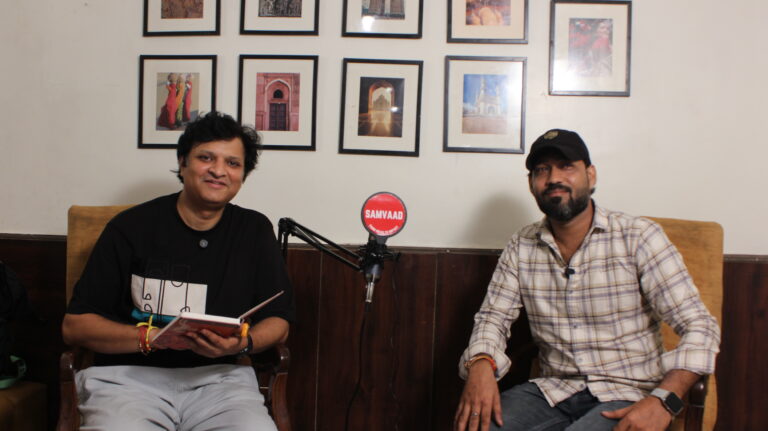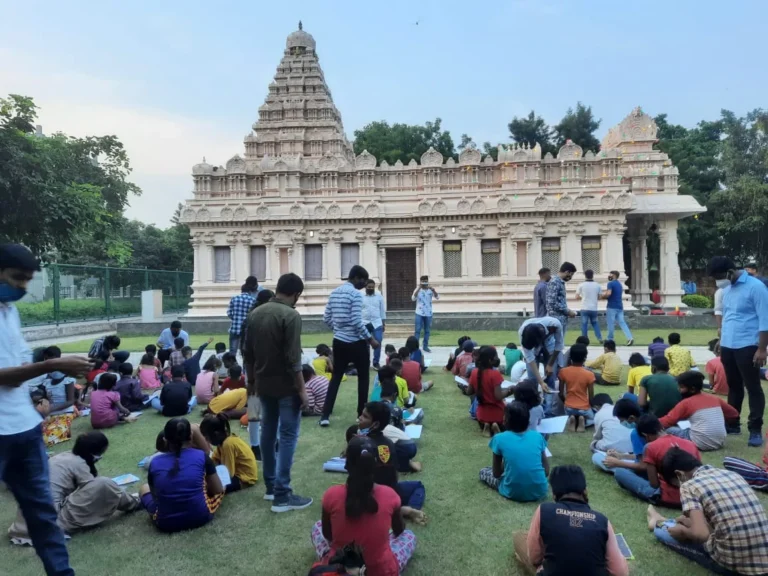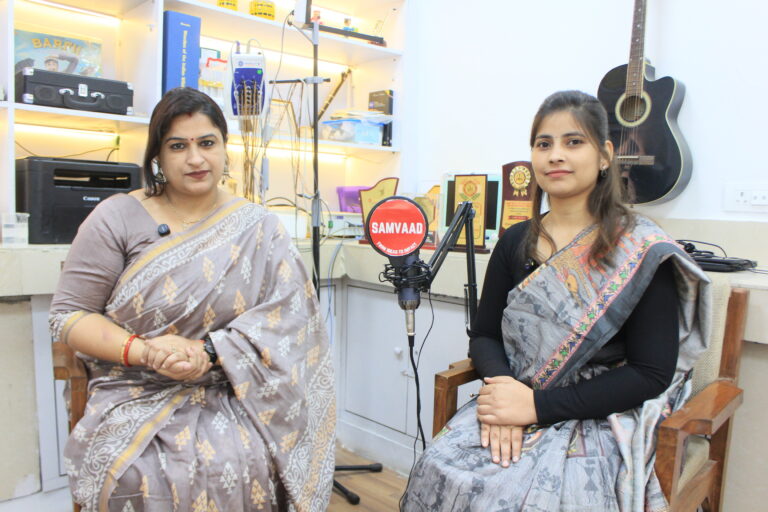Is Social Media Fueling Mental Health Challenges? Insights from Dr. Arnab Chakrabarti on SAMVAAD
In a brand-new episode of SAMVAAD Podcast we had the honor of engaging with Dr. Arnab Chakrabarti, Director of the School of Leadership and Management at Manav Rachna International Institute of Research and Studies (MRIIRS). A thought leader in progressive education, Dr. Arnab bridges academic direction with social insight, making his views on mental health, education, and digital technologies deeply relevant in today’s times.
The discussion, centered on whether social media is contributing to mental health concerns among students and young professionals, brought fresh perspectives that every parent, teacher, and policymaker should hear.
Social Media: Tool or Trap?
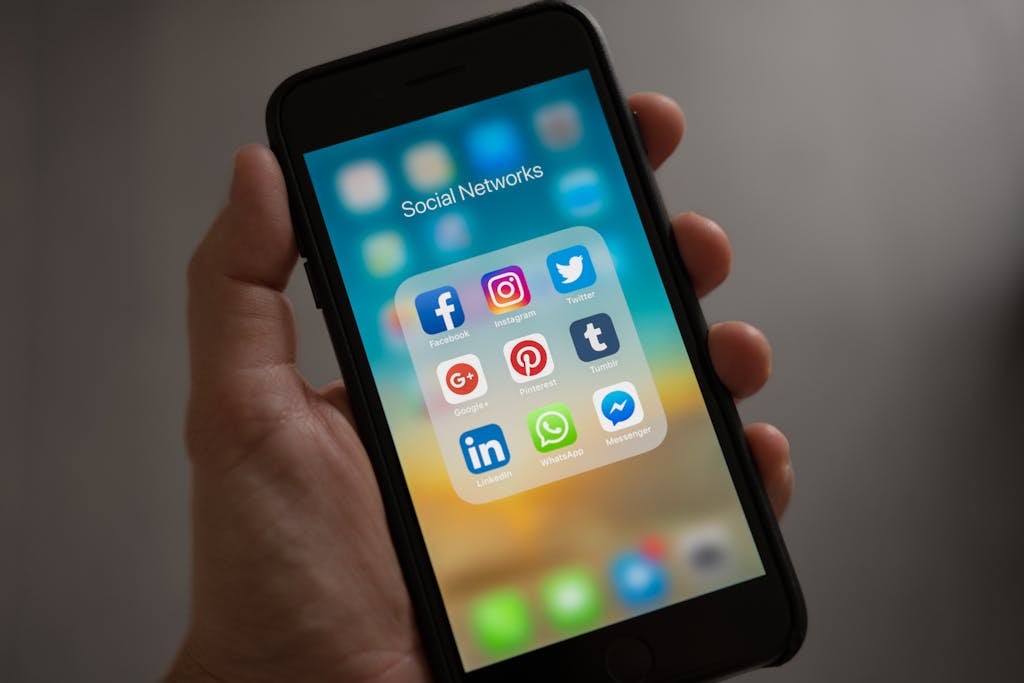
Dr. Arnab opened with a nuanced view:
“I have mixed feelings about social media. For some, it becomes a tool for showcasing talent, networking, and branding. For others, it turns into a trap, endless scrolling, reels, and wasted hours that lead to anxiety and emotional fatigue.”
This aligns with research by the American Psychological Association, which shows increased screen time and digital dependence correlating with stress, sleep issues, and depression.
But Dr. Arnab emphasized that mentorship and guidance are the real differentiators. Students must be taught to use social platforms constructively, for collaboration, knowledge-sharing, and self-branding, rather than succumbing to passive consumption.
Signs Educators & Parents Should Watch
According to Dr. Arnab, the role of educators and families is critical. Handholding is necessary in this digital era. Teachers and parents should look for early signs of digital overuse:
- Declining academic focus
- Social withdrawal
- Constant comparison with peers online
- Mood swings linked to online activity
By recognizing these signals, schools and families can intervene before habits solidify into long-term mental health challenges.
Real Influence vs. Digital Illusion
One of the sharpest points from the conversation was on leadership in the digital age:

“Are we becoming better leaders, or just better at pretending online?”
Dr. Arnab highlighted the difference between real influence and digital illusion. While platforms like Instagram, YouTube, and LinkedIn create opportunities for branding, they can also foster superficial validation. Students must be taught to build authentic influence, grounded in skills, empathy, and values — rather than relying only on likes and followers.
This echoes the mission of MRIIRS School of Leadership and Management, which constantly emphasizes practical exposure, collaboration, and holistic personality development.
The AI Factor: Wings or Weights?
The conversation also touched upon Artificial Intelligence (AI), the latest buzzword shaping education and youth culture. Dr. Arnab acknowledged AI’s potential in providing wings to collaboration and learning. However, he cautioned against over-reliance:
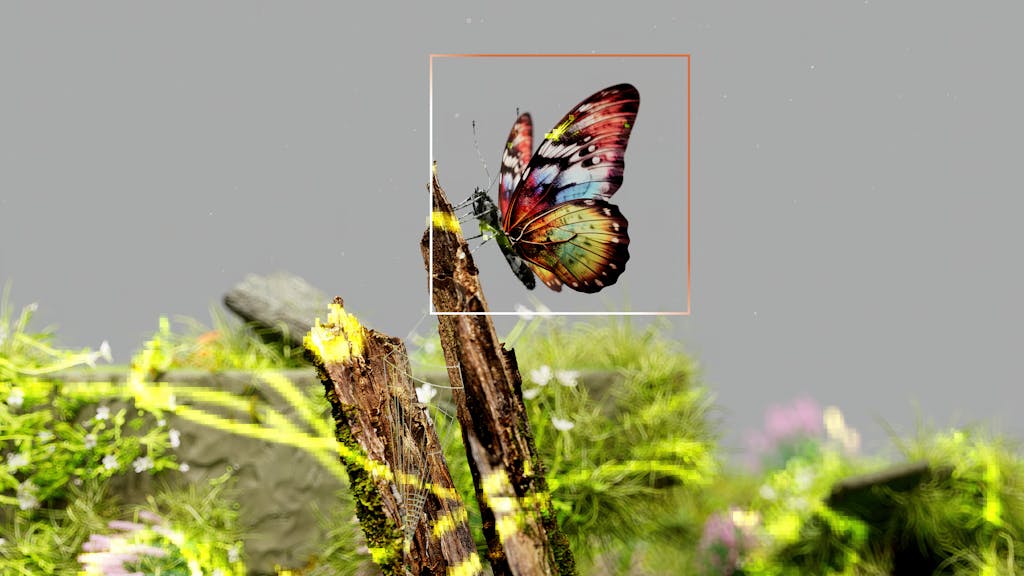
“We see our next generation lacking social skills. Detox from AI is as important as digital detox. Real human interaction remains irreplaceable.”
This perspective is vital for students pursuing leadership and management studies, where emotional intelligence is as critical as technical know-how.
Mental Health, Balance, and Leadership by Example
Perhaps the most heartfelt moment came when Dr. Arnab spoke about his own strategies for maintaining mental health. Despite the pressures of being a director, academic leader, and family man, he finds balance by spending time with his son and wife, often blending family time with professional responsibilities.
“Setting examples will start from parents and teachers. Only then can we expect our students to behave accordingly.”
This statement ties strongly with mental health advocacy, leadership isn’t about preaching, but about living the balance.
Key Takeaway: Balance is the Real Remedy
Dr. Arnab concluded the podcast with a timeless message:
“Excess of everything is bad. Devote time to family, friends, work, and yourself. Strike a balance — that’s where mental peace lies.”
At a time when youth are bombarded with content, this message couldn’t be more relevant. Social media is neither purely good nor bad, it’s about how consciously we use it.
Final Thoughts
The episode reinforced that mental health is not a luxury, it’s a necessity. Schools, universities, and families must work together to ensure that technology remains a tool of empowerment, not enslavement.
As SAMVAAD – From Ideas to Impact | Connect, continues bringing voices like Dr. Arnab’s, the goal remains clear: to create a generation of youth who are resilient, creative, and balanced leaders.
🔗 Learn more about the initiatives at Manav Rachna University and how the School of Leadership and Management is preparing future leaders.
Saumya D Tewari | 9811901985
Write to us at- samvaadconnect@gmail.com
